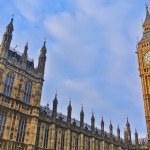News - Construction News
Spending review highlights infrastructure

In this week’s Government Spending Review, new Chancellor Sajid Javid promised the fastest planned increase in day-to-day departmental spending for 15 years.
Chancellor Javid said the government was ‘turning the page’ on austerity, seeing increases in budgets across the government departments, and promised no new cuts to budgets.
This autumn’s Spending Round set out departmental spending plans for 2020-2021 to deliver on the public’s priorities, including health, education, and security. Departmental day-to-day spending is paid for through resource budgets which covers things like schools and hospitals.
Day-to-day departmental spending will now grow by 4.1% above inflation in 2020-21 compared to the previous year. For the first time since 2002, no government department will see a cut to its day-to-day budget.
With money put aside to assist the UK in its preparations for leaving the EU, education, health, policing and justice are those who have benefitted most from the review.
Mr Javid recognised the importance of infrastructure to the progression of the UK, saying: “The first priority of our new economic plan will be to rebuild our national infrastructure. High quality and reliable infrastructure is essential to how we live, work and travel.”
He said that, for too long infrastructure in this country has suffered from under-investment and it was necessary to improve everything: “From the motor highway to the information highway…we’ll settle for nothing less than an infrastructure revolution.”
Mr Javid promised ambitious plans to address the infrastructre gap in the next budget, starting with the review of HS2.
He committed the government to support the development of infrastructure, but said he also wanted to provide a background of economic confidence to encourage private investment. By using independent bodies such as The National Infrastructure Commission to help guide the government investment, private investors could be assured of these economic plans.
Chair of the National Infrastructure Commission Sir John Armitt said: “The Chancellor is right to recognise the UK must up its game on infrastructure, but any revolutionary plans for digital connectivity, improvements to failing urban transport networks and expanding clean energy must be translated into effective actions.
“The Government must therefore ensure its forthcoming National Infrastructure Strategy is truly long-term in outlook, backed by clear goals and stable and ambitious funding, and genuinely committed to a change in approach. Such a transformative shift is essential if our country is to thrive and cope with the challenges of a growing population and the impacts of climate change.”
“Fortunately the Chancellor has in our National Infrastructure Assessment a costed, strategic and deliverable blueprint for how that can be achieved. We hope he is true to his word and accepts our expert advice.”
While Darren Caplan, Chief Executive of the Railway Industry Association, called for more clarity: “As the Government launches its Spending Round for the coming year, and looks towards a three-year Spending Review next year, the rail industry desperately needs to know what rail enhancements are planned.
“Rail suppliers clearly need visibility of upcoming rail upgrades in order to deliver effectively. Not publishing shovel-ready projects in the pipeline means investment is reduced, jobs are lower than they otherwise would be, and upgrades become more expensive as the industry takes time to gear up for individual schemes. So today – as the Government published its spending across a number of sectors – we are asking the Government to follow its own advice, as set out by the Cabinet Office’s Outsourcing Playbook, and ‘Be SURE – Show Us the Rail Enhancements’.”
And Mark Robinson, Scape Group chief executive, commented: “It’s promising to see the Chancellor recognise the UK has fallen behind its competitors thanks to our underinvestment in infrastructure.
“However, today’s announcement lacked clarity on any fresh funding or detailed plans to rectify the problem. Crossrail is still falling behind, fresh industry data reignited fears that the construction sector is falling into recession – and HS2 could now be delayed by up to seven years. Stronger transport links between UK cities is vital for the economy to prosper nationwide. The “infrastructure revolution” can’t wait. We need action now.”
If you would like to read more articles like this then please click here.
Related Articles
More News
- Reforms to Building Safety Regulator to accelerate housebuilding
15 Jul 25
Delays to building new high-rise homes will be unblocked through a new package of reforms
- New £39Bn Social and Affordable Homes Programme
14 Jul 25
Hundreds of thousands of social and affordable homes, including 60% for social rent.
- UK Introduces New Trade Measures to Support Steel Sector
11 Jul 25
Steel producers across the UK will benefit from stronger trade measures from 1 July.






